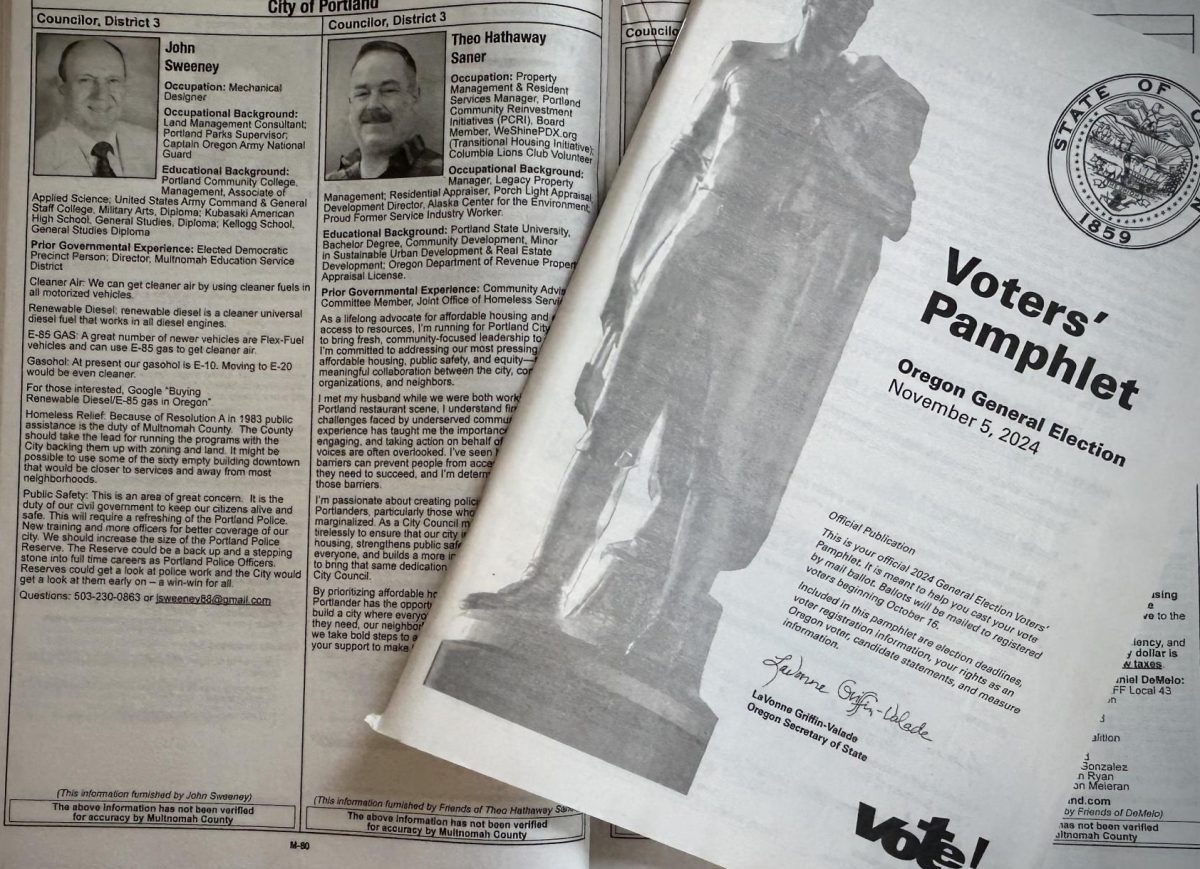On Nov. 5 at 8:00 p.m., the Oregon polls closed and results began to flood in. Oregon’s electoral votes went to Vice President Kamala Harris in the presidential election. In an outcome that surprised many students, former president Donald Trump won the election.
Senior Leena Karmarkar voted for the first time.
“I’m sad about the results,” said Karmarkar. “A lot of the people who voted for Trump are ones who will be negatively affected from Project 2025. … It’s also so sad to think about how much worse our climate will get and how many women could die due to a lack of abortion care.”
Senior Sophie Liu was not eligible to vote in this election but still tracked the results. She expressed disappointment about the reelection of Trump due to the possible impact it may have on issues such as abortion rights.
“I am seriously concerned about women’s rights, including abortion access,” said Liu. “While abortion rights are currently left to states, I fear federal restrictions may increase under Trump’s influence, limiting women’s choices.”
Sophomore G Wagner believes there were mixed emotions about the election results.
“In Portland and blue states, Trump winning is a heartbreak, but in the red states, Kamala losing is a relief. The candidate who won may upset people here, but go a state over, and they are celebrating,” said Wagner. “Overall, this election was a roller coaster of emotions for everyone involved and both candidates did a great job.”
In terms of what they want in a candidate, Liu and Karmarkar both look for honesty and integrity.
“I look for candidates who are committed to addressing the specific needs of people in our area, whether that is improving education, the economy or the homeless issues,” said Liu. “I value candidates who are honest and have realistic and concrete plans to solve those issues.”
Elections for Portland officials, including the mayor and city council, used the new ranked-choice voting system. According to Multnomah County, due to the large number of candidates, results were not announced until Wednesday night Nov. 6.
Titan Freight CEO Keith Wilson won the race for mayor of Portland over the other leading candidates. After the defeat of 17 other candidates, Wilson ended with 62% of the votes, with Rubio in second with 38% of the votes.
Oregonians voted yes on Measure 115, which, according to the Oregon voters pamphlet, amends the Oregon Constitution to allow “impeachment of statewide elected officials by Oregon Legislature with a two-thirds vote by each House.” Previously, there had been no impeachment process for statewide officials in the legislative or judicial branches.
“[I support measure] 115 because it prevents crazy people who may have somehow gotten elected from staying in office,” said Karmarkar.
Oregonians voted no on Measure 117 which would have implemented ranked choice voting for statewide and some federal elections.
While Karmarkar believes ranked choice voting is a good idea in theory, it could be confusing.
“I liked the idea but it’s kind of complicated,” said Karmarkar.
When voting, Karmarkar focused on the endorsements of the candidates listed in the voter pamphlet but believes many factors influence a vote.
I thought [the attack ads] were a bit excessive, but at the same time I believe the reason Trump won was because of social media,” said Karmarkar.
Liu agrees with Karmarkar that these ads are counterproductive.
“Campaigns should focus on presenting their own policies instead of using time and resources on negative ads,” said Liu. “If candidates truly listened to the people, they could focus on what would genuinely improve voters’ lives. Politics should serve the people, not target opponents.”
Read more about ranked-choice voting, Project 2025 and how social media can influence an election on The Cardinal Times website.

